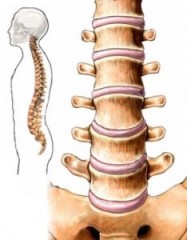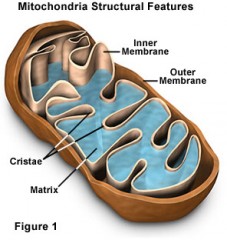
Welcome back to” You Decide”,
This Sunday March 11, 2012 at 9 PM Eastern and 6 PM Pacific time, we will continue with our new “You Decide” radio talk show featuring a wonderful guest host, the very talented Stunt Coordinator and Actor, Mr. Dan Shea.Dan will address the subject of physical fitness and how it has benefited him in his career, on “WHR You Decide“.
If you are reading this, it is a fair guess that you are sitting down in front of a computer screen. How often and how long you sit during the day, and whether or not you make time to exercise plays an important part in the length and quality of your life.
The health benefits of regular exercise and physical activity are hard to ignore. And the benefits of exercise are yours for the taking, regardless of your age, sex or physical ability. Need more convincing to exercise? Check out the following ways that exercise can improve your life.
Exercise controls weight
Exercise can help prevent excess weight gain or help maintain weight loss. When you engage in physical activity, you burn calories. The more intense the activity, the more calories you burn. You don’t need to set aside large chunks of time for exercise to reap weight-loss benefits. If you can’t do an actual workout, get more active throughout the day in simple ways — by taking the stairs instead of the elevator or revving up your household chores.
Exercise combats health conditions and diseases
 Worried about heart disease? Hoping to prevent high blood pressure? No matter what your current weight, being active boosts high-density lipoprotein (HDL), or “good,” cholesterol and decreases unhealthy triglycerides. This one-two punch keeps your blood flowing smoothly, which decreases your risk of cardiovascular diseases. In fact, regular physical activity can help you prevent or manage a wide range of health problems and concerns, including stroke, metabolic syndrome, type 2 diabetes, depression, certain types of cancer, arthritis and falls.
Worried about heart disease? Hoping to prevent high blood pressure? No matter what your current weight, being active boosts high-density lipoprotein (HDL), or “good,” cholesterol and decreases unhealthy triglycerides. This one-two punch keeps your blood flowing smoothly, which decreases your risk of cardiovascular diseases. In fact, regular physical activity can help you prevent or manage a wide range of health problems and concerns, including stroke, metabolic syndrome, type 2 diabetes, depression, certain types of cancer, arthritis and falls.

Do you suffer from back pain? Pain in the spine can be due to disc degeneration, which means that the disc cells no longer have normal functions. Based on the results of a study from the University of Gothenburg in Sweden, physical exercise may be an effective treatment for back pain. The research team led by Helena Brisby and Björn Rydevik intends to go on to study whether the cells in degenerated discs respond as positively to exercise as they have now shown to do in normal discs.
“Physical exercise is already an important part of the treatment for back pain today, but there is limited knowledge about the specific effect that exercise has on the discs and what the optimal dose of exercise is,” says Björn Rydevik, a professor in the Department of Orthopaedics at Sahlgrenska Academy.
Exercise promotes better sleep
Struggling to fall asleep? Or to stay asleep? Regular physical activity can help you fall asleep faster and deepen your sleep. Just don’t exercise too close to bedtime, or you may be too energized to fall asleep. People sleep significantly better and feel more alert during the day if they get at least 150 minutes of exercise a week. A nationally representative sample of more than 2,600 men and women, ages 18-85, found that 150 minutes of moderate to vigorous activity a week provided a 65 percent improvement in sleep quality. People also said they felt less sleepy during the day, compared to those with less physical activity.

The study, published in the December 2011 issue of the Journal Mental Health and Physical Activity, lends more evidence to mounting research showing the importance of exercise to a number of health factors. Among adults in the United States, about 35 to 40 percent of the population has problems with falling asleep or with daytime sleepiness.
“We were using the physical activity guidelines set forth for cardiovascular health, but it appears that those guidelines might have a spillover effect to other areas of health,” said Brad Cardinal, a professor of exercise science at Oregon State University and one of the study’s authors.
Exercise improves mood
Need an emotional lift? Or need to blow off some steam after a stressful day? A workout at the gym or a brisk 30-minute walk can help. Physical activity stimulates various brain chemicals that may leave you feeling happier and more relaxed. You may also feel better about your appearance and yourself when you exercise regularly, which can boost your confidence and improve your self-esteem. People who are more physically active have reported greater levels of excitement and enthusiasm than people who are less physically active, according to Penn State researchers. People also are more likely to report feelings of excitement and enthusiasm on days when they are more physically active than usual. “You don’t have to be the fittest person who is exercising every day to receive the feel-good benefits of exercise,” said David Conroy, professor of kinesiology. “It’s a  matter of taking it one day at a time, of trying to get your activity in, and then there’s this feel-good reward afterwards.”
matter of taking it one day at a time, of trying to get your activity in, and then there’s this feel-good reward afterwards.”
Conroy added that it often is hard for people to commit to an exercise program because they tend to set long term rather than short-term goals. “When people set New Year’s resolutions, they set them up to include the entire upcoming year, but that can be really overwhelming,” he said. “Taking it one day at a time and savoring that feel-good effect at the end of the day might be one step to break it down and get those daily rewards for activity. Doing this could help people be a little more encouraged to stay active and keep up the program they started.”
Exercise boosts energy and mental clarity
Winded by grocery shopping or household chores? Do you have trouble climbing stairs? Regular physical activity can improve your muscle strength and boost your endurance. Exercise and physical activity deliver oxygen and nutrients to your tissues and help your cardiovascular system work more efficiently. And when your heart and lungs work more efficiently, you have more energy to go about your daily chores. Being physically active has been associated with increased brain activity in students. “As children’s health continues to be a concern — especially when it comes to obesity — some have suggested that children’s physical fitness is associated with their academic performance,” said Lesley A. Cottrell, Ph.D., study presenting author and associate professor of pediatrics at West Virginia University in Morgantown, W.Va. Children who had the best average scores in standardized tests in reading, math, science and social studies were fit at the start and end of the study, researchers found.
The next best group, academically, in all four subjects, was made up of children who were not fit in fifth grade but had become fit by seventh grade. The children who had lost their fitness levels between fifth  and seventh grades were third in academic performance. Children who were not physically fit in either the fifth or seventh grades had the lowest academic performance. Researchers have long known that regular exercise increases the number of organelles called mitochondria in muscle cells. Since mitochondria are responsible for generating energy, this numerical boost is thought to underlie many of the positive physical effects of exercise, such as increased strength or endurance. Exercise also has a number of positive mental effects, such as relieving depression and improving memory. However, the mechanism behind these mental effects has been unclear. In a new study in mice, researchers at the University of South Carolina have discovered that regular exercise also increases mitochondrial numbers in brain cells, a potential cause for exercise’s beneficial mental effects. The researchers assigned mice to either an exercise group, which ran on an inclined treadmill six days a week for an hour, or to a sedentary group, which was exposed to the same sounds and handling as the exercise group but remained in their cages during the exercise period. After eight weeks, researchers examined brain and muscle tissue from some of the mice in each group to test for signs of increases in mitochondria. Additionally, some of the mice from each group performed a “run to fatigue” test to assess their endurance after the eight-week period. The results showed that mice in the exercise group had increased mitochondria in their muscle tissue compared to mice in the sedentary group.
and seventh grades were third in academic performance. Children who were not physically fit in either the fifth or seventh grades had the lowest academic performance. Researchers have long known that regular exercise increases the number of organelles called mitochondria in muscle cells. Since mitochondria are responsible for generating energy, this numerical boost is thought to underlie many of the positive physical effects of exercise, such as increased strength or endurance. Exercise also has a number of positive mental effects, such as relieving depression and improving memory. However, the mechanism behind these mental effects has been unclear. In a new study in mice, researchers at the University of South Carolina have discovered that regular exercise also increases mitochondrial numbers in brain cells, a potential cause for exercise’s beneficial mental effects. The researchers assigned mice to either an exercise group, which ran on an inclined treadmill six days a week for an hour, or to a sedentary group, which was exposed to the same sounds and handling as the exercise group but remained in their cages during the exercise period. After eight weeks, researchers examined brain and muscle tissue from some of the mice in each group to test for signs of increases in mitochondria. Additionally, some of the mice from each group performed a “run to fatigue” test to assess their endurance after the eight-week period. The results showed that mice in the exercise group had increased mitochondria in their muscle tissue compared to mice in the sedentary group.
The bottom line on exercise
Exercise and physical activity are a great way to feel better, gain health benefits and have fun. As a general goal, aim for at least 30 minutes of physical activity every day. If you want to lose weight or meet specific fitness goals, you may need to exercise more. Remember to check with your doctor before starting a new exercise program, especially if you have any health concerns.
 Thanks to Kenn for staging the ‘Physical’ theme video in this post for me, and thanks to you for stopping by WormholeRiders News Agency! See you all for staying fit discussions with Dan Shea this Sunday 6 PM PST 9 PM EST
Thanks to Kenn for staging the ‘Physical’ theme video in this post for me, and thanks to you for stopping by WormholeRiders News Agency! See you all for staying fit discussions with Dan Shea this Sunday 6 PM PST 9 PM EST
Please feel free to leave a comment here, click an icon below to share this interview, or you can visit and follow me on Twitter by clicking on my avatar to the right.
Regards,
Thank you.
ArcticGoddess1 (Patricia)